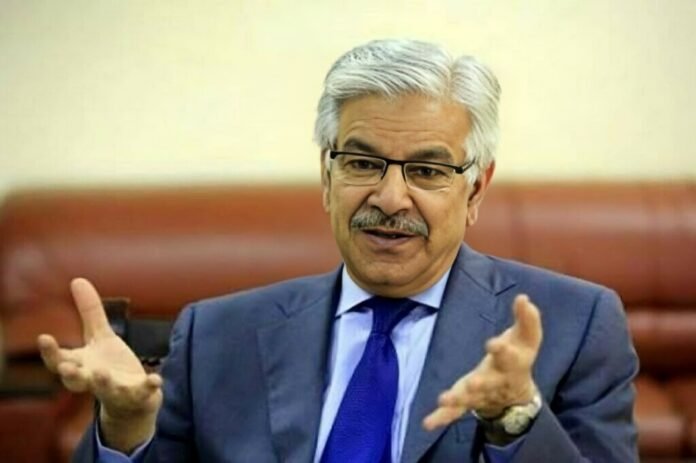Defense Minister Khawaja Asif has stated that under Operation Azm-e-Istihkam, Pakistan might conduct operations in Afghanistan if necessary. He asserted that if required, Tehrik-i-Taliban Pakistan (TTP) could be targeted across the border. He emphasized that nothing is more important than Pakistan’s sovereignty, and terrorism from Afghan soil on Pakistani territory is a violation of international law.
No US Assistance for the Operation
Khawaja Asif clarified that Pakistan will no longer seek assistance from the USA for this operation, which will depend on its assets and capabilities. All visitors from Afghanistan must now possess passports and visas for entry, as the Afghanistan border transitions to a global border. In an interview with Voice of America, Asif mentioned that recent terrorism in Pakistan originates from Afghanistan. He questioned the legality of Afghanistan exporting terrorism to Pakistan and indicated that Pakistan would respond under the same legal framework.
Addressing the TTP Presence in Afghanistan
He highlighted that TTP members were taking refuge under the protection of the Afghan Taliban and questioned whether Pakistan should plead with the Afghan Taliban. The Defense Minister noted that TTP has local structures and hideouts in Afghanistan. He mentioned that there is no negotiation route with extremists in Operation Azm-e-Istihkam. As those threatening Pakistan’s sovereignty cannot be negotiated with. If PTI’s negotiation attempts had succeeded, they might have followed that example, but they brought 4,000 to 5,000 Taliban into Pakistan through talks during their tenure.
Past Military Operations and Political Government’s Role
Khawaja Asif said that functions like Zarb-e-Azb, Radd-ul-Fasaad, and Rah-e-Nijat have been not tragedies. However, political governments neglected their responsibilities post-operations, allowing terrorists to regroup. He emphasized that the military has demonstrated its resolve through sacrifices. The government plans to take political parties into confidence regarding Operation Azm-e-Istihkam. Address their concerns and discuss the operation’s contours in parliament. An all-parties conference might also be convened regarding the operation.
Scope of the Current Operation
The current operation differs from past operations, with no large-scale displacements expected. Political parties opposed the formulation of the Operation Azm-e-Istihkam policy slowly, citing their interests. Asif pointed out that the US had cooperated in the past for its interests but has now left Pakistan isolated, akin to the 1980s. Expecting aid from the US is futile, and China remains Pakistan’s top investment priority.
Comments on US Elections and Pakistan’s Elections
Khawaja Asif remarked on allegations of rigging in US elections, questioning America’s authority to question Pakistan’s elections. He suggested that the upcoming we presidential election influences these statements. Where candidates need funding and thus speak in the interest of their donors.
Talks with PTI and Other Political Matters
The Defense Minister said they could establish a negotiation process with PTI if Imran Khan showed willingness. He mentioned that the judiciary could only decide on the release of PTI’s founder, and he does not support imprisoning anyone on political grounds. He desired the PPP to take up ministries and noted that Nawaz Sharif remains involved in governmental affairs, including budget preparations.
Statements on China and CPEC
In a conversation with the media at the Parliament House, Khawaja Asif addressed Maulana Fazlur Rahman’s statements about China. He stated that there should be no ambiguities after China’s assurance of cooperation. If Maulana Fazlur Rahman seeks more information, they will provide it. Asif termed the China visit successful, citing the revival of CPEC as evidence. Some strategic matters, however, cannot be shared.
Post-US Withdrawal Terrorism
He concluded by stating that terrorism increased in Pakistan after the US withdrawal from Afghanistan. And that terrorism on Pakistani soil originated from Afghan territory.


